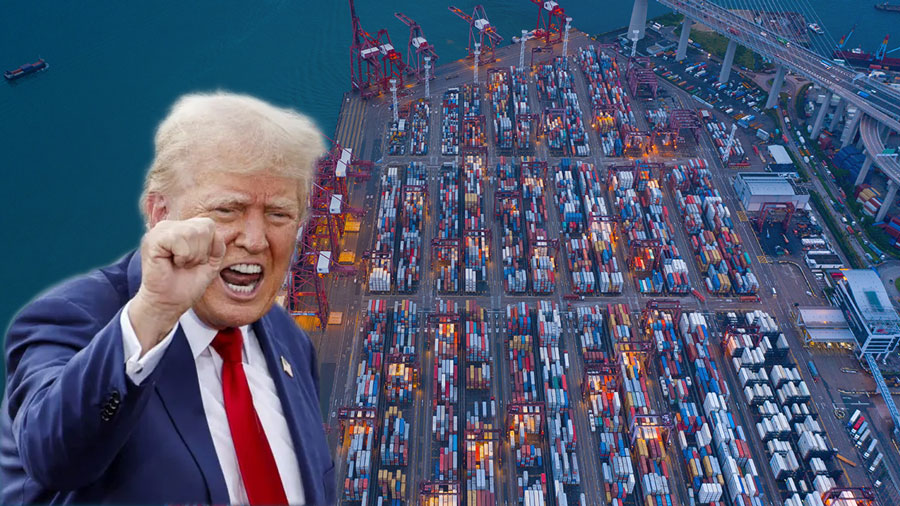

Due to insufficient production capacity, the pressure on US ports has increased sharply
The American Ports Association (AAPA) recently responded to the final action of the Office of the United States Trade Representative (USTR) based on the Section 301 investigation, warning that the shipping industry and consumers still face significant challenges. Although the final plan is milder than the original proposal, it will implement a stepped charging system for Chinese vessels and intends to impose high tariffs on cargo handling equipment such as the bridge (CHE). The AAPA pointed out that this move will still increase shipping costs and impact the operations of key ports.
The AAPA is particularly concerned about the newly introduced charging policy for car carriers. According to the new regulations, each foreign-made car carrier will be charged a fee of 150 US dollars per CEU. This policy will have a huge impact on professional auto import ports.
The World Shipping Council also criticized that this port charge would affect almost all car carriers worldwide. "This arbitrary action against all foreign-built ships will further drag down the economic growth of the United States, push up the cost of car purchases for American consumers, but do nothing to stimulate investment in maritime transportation in the United States," the association said.
The introduction of this charging policy for car carriers comes at a time when the automotive shipping industry is facing the impact of the Trump administration's additional tariffs on imported cars.
Although the USTR did not explain this charge, Jamieson Greer pointed out that the Trump administration intended to "send a signal of demand" through this move, aiming to promote the return of the shipbuilding industry to the United States.
At present, there is only one pure car/truck carrier (PCTC) built in the United States, which is the "Jean Anne" (with a capacity of 4,300 CEU, built in 2005) under the Pasha Hawaii Company.
AAPA also expressed concern over the additional tariffs imposed on quay Cranes (STS Cranes), warning that they would seriously hinder port development. "Currently, there are no quay crane manufacturers in the United States," he pointed out. "If there are no incentives from the federal government to support domestic production capacity, such tariffs will essentially become a heavy burden restricting port expansion."
The AAPA has joined forces with 316 industry organizations to oppose this tariff policy and submitted an opinion based on economic research, emphasizing its potential risks to the entire supply chain. Currently, the association is actively mobilizing various ports to contact members of Congress and promote legislation to provide tax credits for cargo handling equipment (CHE) manufactured domestically in the United States.
"The port industry supports the return of key equipment manufacturing to the domestic market," Davis said. "But we need practical solutions, not policies that punish ports and drag down the economy."

The AAPA is particularly concerned about the newly introduced charging policy for car carriers. According to the new regulations, each foreign-made car carrier will be charged a fee of 150 US dollars per CEU. This policy will have a huge impact on professional auto import ports.
The World Shipping Council also criticized that this port charge would affect almost all car carriers worldwide. "This arbitrary action against all foreign-built ships will further drag down the economic growth of the United States, push up the cost of car purchases for American consumers, but do nothing to stimulate investment in maritime transportation in the United States," the association said.
The introduction of this charging policy for car carriers comes at a time when the automotive shipping industry is facing the impact of the Trump administration's additional tariffs on imported cars.
Although the USTR did not explain this charge, Jamieson Greer pointed out that the Trump administration intended to "send a signal of demand" through this move, aiming to promote the return of the shipbuilding industry to the United States.
At present, there is only one pure car/truck carrier (PCTC) built in the United States, which is the "Jean Anne" (with a capacity of 4,300 CEU, built in 2005) under the Pasha Hawaii Company.
AAPA also expressed concern over the additional tariffs imposed on quay Cranes (STS Cranes), warning that they would seriously hinder port development. "Currently, there are no quay crane manufacturers in the United States," he pointed out. "If there are no incentives from the federal government to support domestic production capacity, such tariffs will essentially become a heavy burden restricting port expansion."
The AAPA has joined forces with 316 industry organizations to oppose this tariff policy and submitted an opinion based on economic research, emphasizing its potential risks to the entire supply chain. Currently, the association is actively mobilizing various ports to contact members of Congress and promote legislation to provide tax credits for cargo handling equipment (CHE) manufactured domestically in the United States.
"The port industry supports the return of key equipment manufacturing to the domestic market," Davis said. "But we need practical solutions, not policies that punish ports and drag down the economy."





